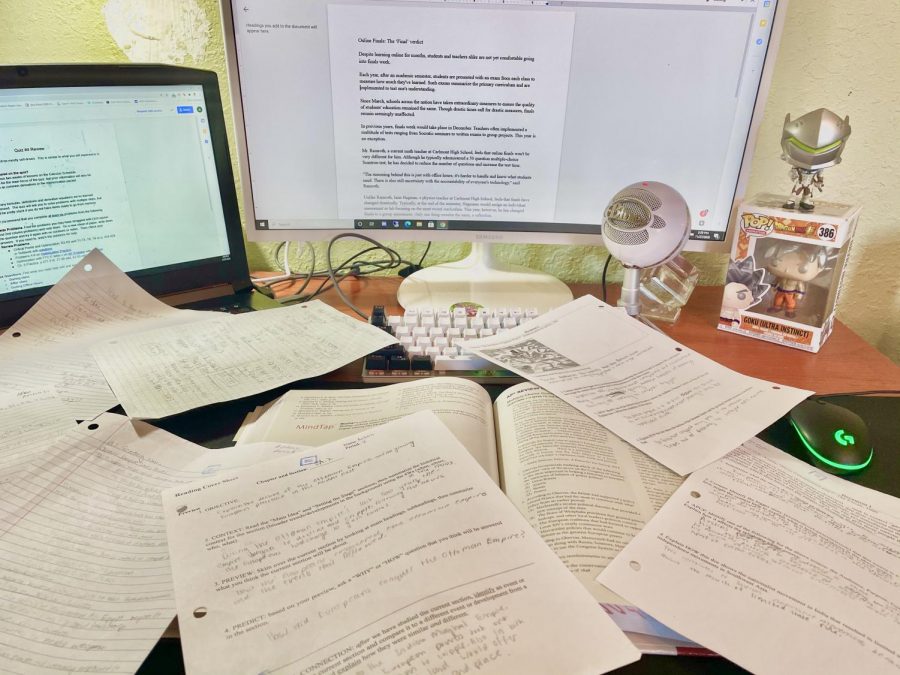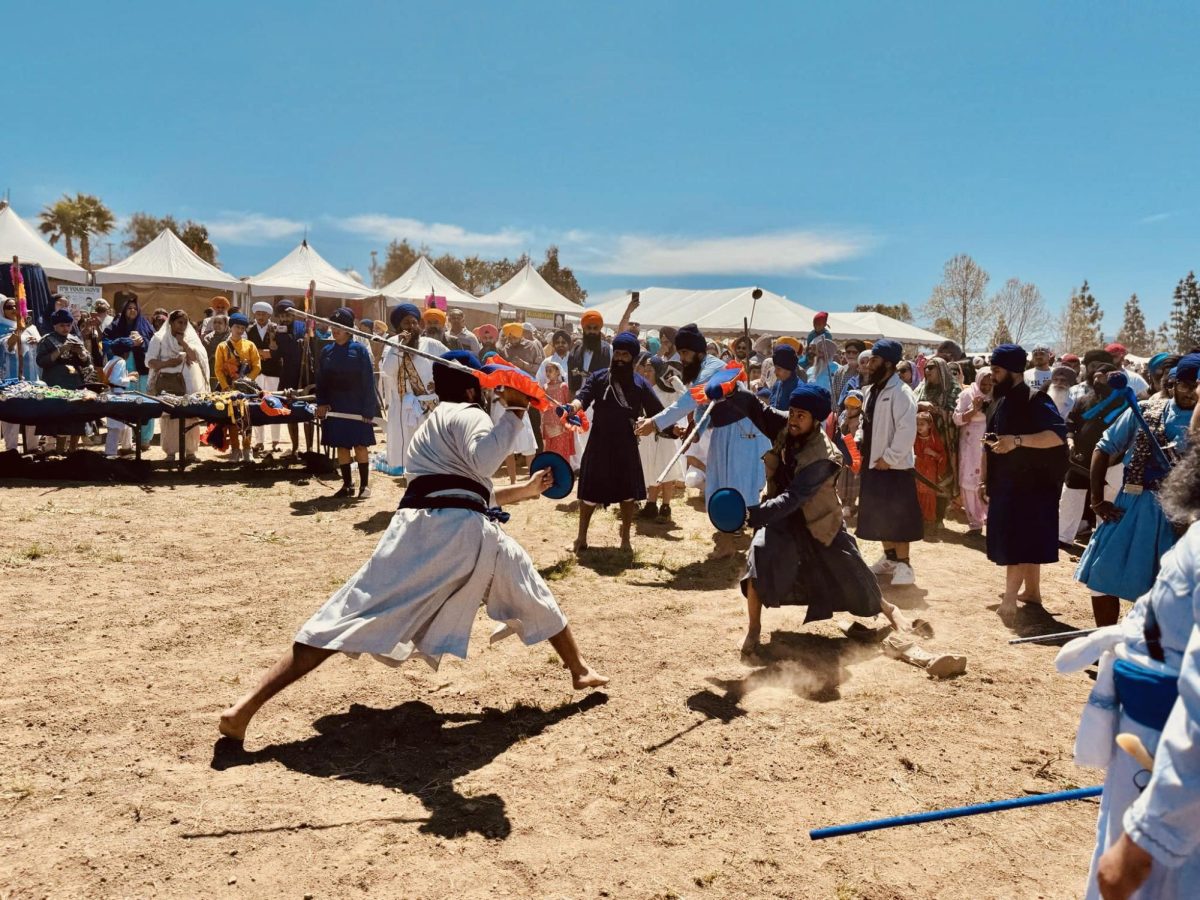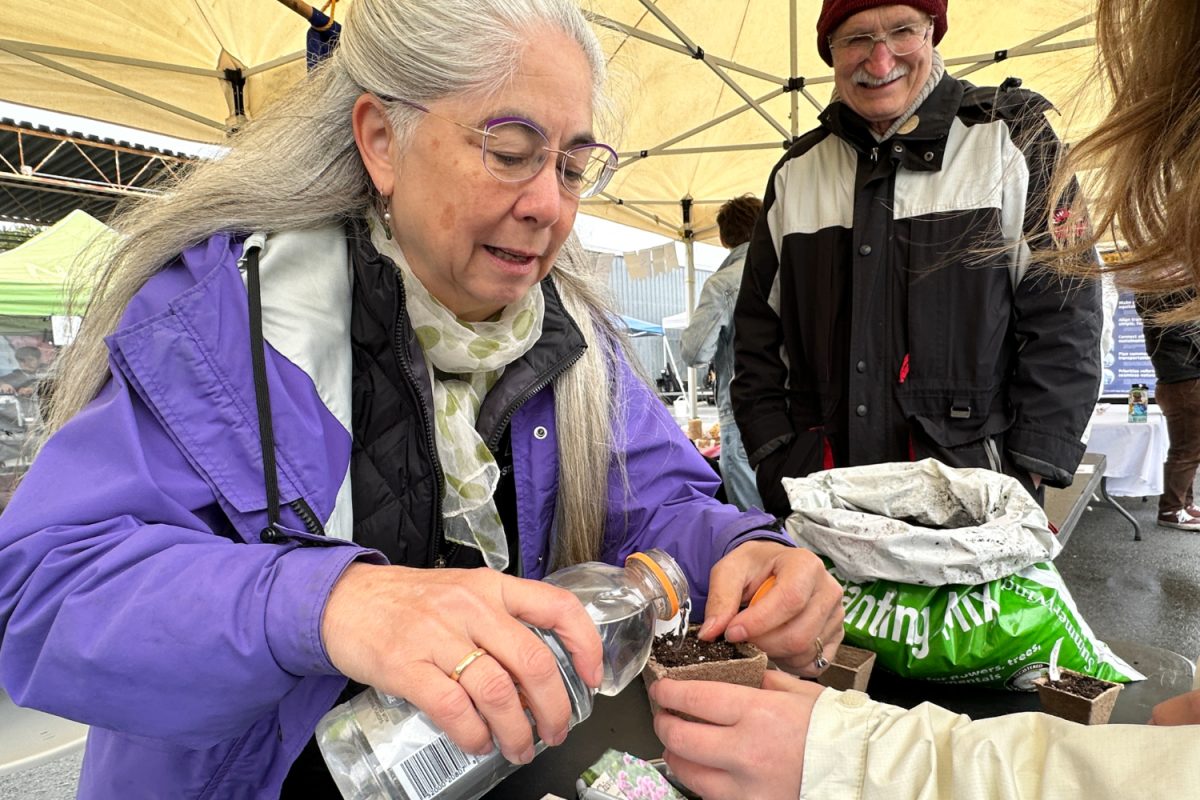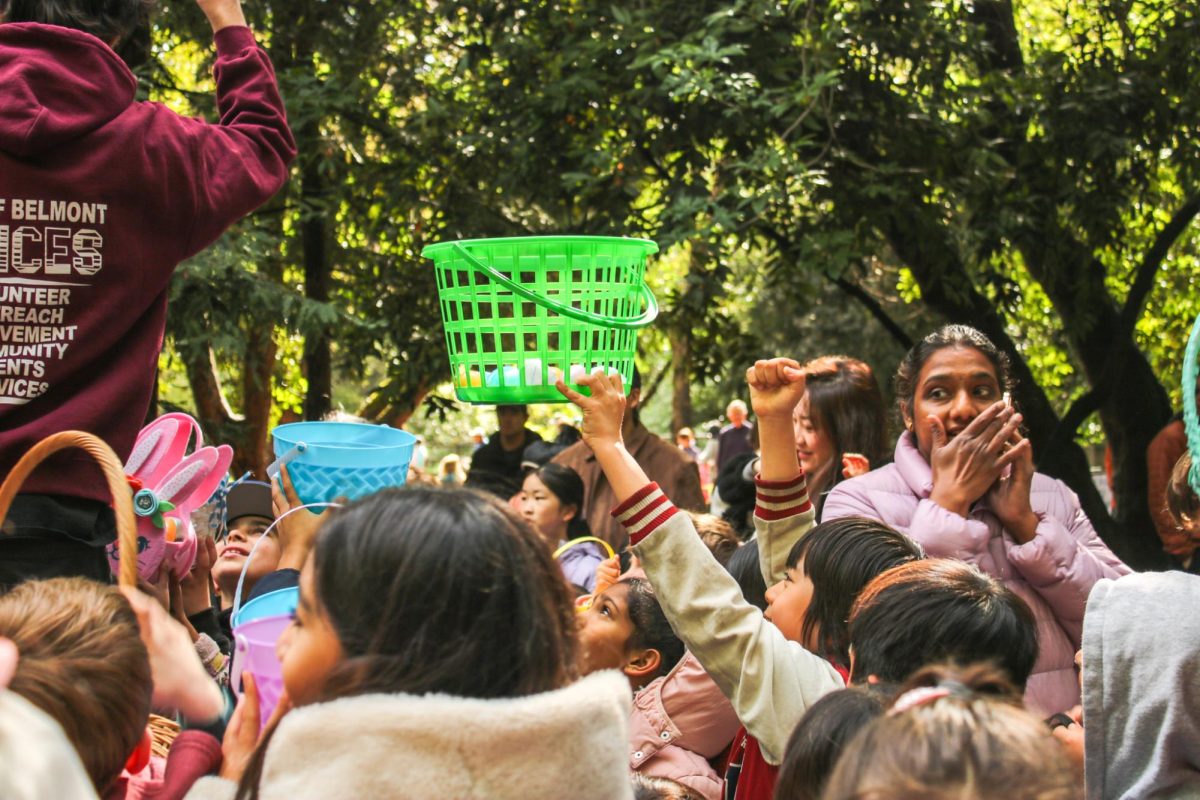Despite learning online for months, students and teachers alike struggle to prepare for finals week.
Each year, after an academic semester, students are presented with an exam from each class to measure how much they’ve learned. Such exams summarize the primary curriculum and are implemented to test one’s understanding.
Since March, schools across the nation have taken extraordinary measures to ensure the quality of students’ education remained the same. Though drastic times call for drastic measures, finals remain seemingly unaffected.
In previous years, finals week would take place in December. Teachers often implemented a multitude of tests ranging from Socratic seminars to written exams to group projects. This year is no exception.
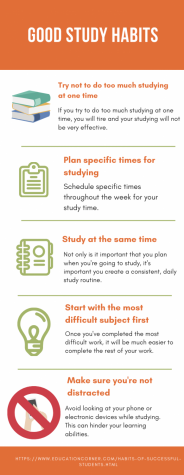 Though finals are still held this year, new factors that online learning brings make this year’s exams quite different for some classes.
Though finals are still held this year, new factors that online learning brings make this year’s exams quite different for some classes.
Iann Hagman, a physics teacher at Carlmont High School, feels that finals have changed drastically. Typically, at the end of the semester, Hagmann would assign an individual assessment or lab focusing on the most recent curriculum. This year, however, he has changed finals to a group assessment. Only one thing remains the same: a reflection.
“There’s no more normal tests like during the regular school year. The whole dynamic has changed for finals,” Hagman said.
Unlike Hagman, Andrew Ramroth, a math teacher at Carlmont High School, feels that online finals won’t be very different for him. Although he typically administered a 50 question multiple-choice Scantron test, he has decided to reduce the number of questions and increase the test time.
“The reasoning behind this is just with office hours; it’s harder to handle and know what students need. There is also still uncertainty with the accountability of everyone’s technology,” Ramroth said.
For students, online learning is seen as a disadvantage going into finals week. According to a recent study, 78% of students prefer traditional learning over learning online, as they believe it’s easier to understand course materials. Although online learning gives students more free time to explore extracurricular activities and interests, it also hinders students’ learning abilities.
“With online learning, I’ve been able to get a lot more done in my free time, but I’d still prefer traditional learning,” said Ryan Jocson, a sophomore at Carlmont. “You’d think that staring at a screen would be easy for us, but after four hours, it honestly is exhausting. To then watch additional lectures from some classes doesn’t work for me. I’m just not learning as well as I used to, which has created a lot of stress.”
The stigma behind finals is that students must do well to succeed in today’s competitive academic environment. With the cancelation of the PSAT, finals have become more important than ever. Students fear that if they don’t perform well on finals, it will create a butterfly effect and alter their chances of getting into their dream colleges.
“When I was in high school, I felt a lot of pressure from things like finals week and the SAT. I studied a lot and worked hard because I wanted to get accepted into my dream college,” said Victor Lin, a senior at the University of California, Los Angeles (UCLA).
Such stigmas and pressures often prompt students to cheat, and with online learning, it is significantly easier to do so. With the internet available to all students, teachers can’t enforce academic integrity policies as well virtually. Although it is mandatory to keep cameras on during class, nothing stops students from sharing answers with peers or using notes.
Even with Carlmont’s Academic Integrity policy that draws guidelines for accountability and states the consequences of cheating, Carlmont’s administration office has struggled to enforce this policy virtually.
However, Canvas, a learning management system that Carlmont uses, offers a countermeasure to cheating. When exams are taken on Canvas, teachers are notified when students browse off to other sites and the duration of time they spend on the tab.
Although students can still cheat through their phones and textbooks, this stops students from opening new browsers.
Despite the difficulties online learning may present, teachers will continue to administer final exams and adapt to their various challenges.
“Online learning isn’t ideal, but it’s definitely been working out,” Ramroth said. “If we continue to teach the way we’ve been doing and students continue to work hard, I think this year will ultimately be a success.”

